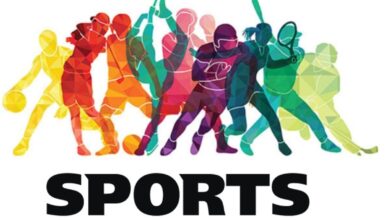
 Diet plays a critical role in the life of a sports athlete. It is one of the key factors that can help an athlete achieve optimal performance. A well-balanced and nutritious diet can help athletes maintain their health and energy levels, recover faster from injuries, and improve their overall athletic performance. In this blog post, we will discuss the essential elements of a diet for sports athletes.
Diet plays a critical role in the life of a sports athlete. It is one of the key factors that can help an athlete achieve optimal performance. A well-balanced and nutritious diet can help athletes maintain their health and energy levels, recover faster from injuries, and improve their overall athletic performance. In this blog post, we will discuss the essential elements of a diet for sports athletes.
Carbohydrates
Carbohydrates are the primary source of energy for athletes. They provide the body with glucose, which is essential for muscle function during exercise. A diet rich in carbohydrates can help athletes perform at their best during training and competition. Carbohydrates can be found in foods such as whole grains, fruits, and vegetables. Athletes should aim to consume at least 50% of their daily calories from carbohydrates.
Protein
Protein is essential for building and repairing muscles. It is also needed to produce enzymes and hormones that help regulate the body’s metabolic processes. Athletes require more protein than sedentary individuals to help their muscles recover and rebuild after intense exercise. Good sources of protein include lean meats, poultry, fish, dairy products, beans, and legumes.
Fat
Fat is an essential component of a healthy diet. It provides the body with energy, helps the body absorb vitamins, and plays a crucial role in hormone production. Athletes should consume healthy fats, such as monounsaturated and polyunsaturated fats, found in foods like nuts, seeds, avocados, and fatty fish. Saturated and trans fats should be limited in the diet as they can increase the risk of heart disease.
Hydration
Staying hydrated is critical for athletes to maintain their performance levels. Dehydration can lead to fatigue, decreased endurance, and decreased cognitive function. Athletes should drink fluids regularly throughout the day and during exercise. Water is the best choice for hydration, but sports drinks can be consumed during prolonged and intense exercise to replenish lost electrolytes and carbohydrates.
Timing and Frequency of Meals
The timing and frequency of meals can impact an athlete’s performance. It is recommended that athletes eat a meal or snack every three to four hours to maintain energy levels and avoid hunger. Eating a meal two to three hours before exercise can provide the body with the necessary nutrients and energy for the activity. After exercise, it is essential to consume carbohydrates and protein within 30 minutes to an hour to help the body recover and rebuild muscle tissue.
Supplements
Supplements should not replace a healthy diet, but they can be used to enhance an athlete’s performance. However, it is crucial to consult with a healthcare professional before taking any supplements to ensure they are safe and effective. Some commonly used supplements for athletes include:
- Creatine: A natural substance found in muscle cells that can help improve muscle strength and endurance.
- Protein powders: Can be used to increase protein intake when whole food sources are not available or practical.
- Caffeine: A stimulant that can increase alertness and improve endurance during exercise.
Special Considerations for Endurance Athletes
Endurance athletes, such as runners, cyclists, and swimmers, have unique nutritional needs due to the prolonged and intense nature of their training and competition. Endurance athletes should consume a diet high in carbohydrates to ensure they have enough energy for long periods of exercise. It is recommended that endurance athletes consume at least 6-10 grams of carbohydrates per kilogram of body weight per day.
Special Considerations for Strength Athletes
Strength athletes, such as weightlifters and powerlifters, have different nutritional needs than endurance athletes. Strength athletes require more protein to help repair and rebuild muscle tissue after intense training. It is recommended that strength athletes consume at least 1.6-2.2 grams of protein per kilogram of body weight per day.





